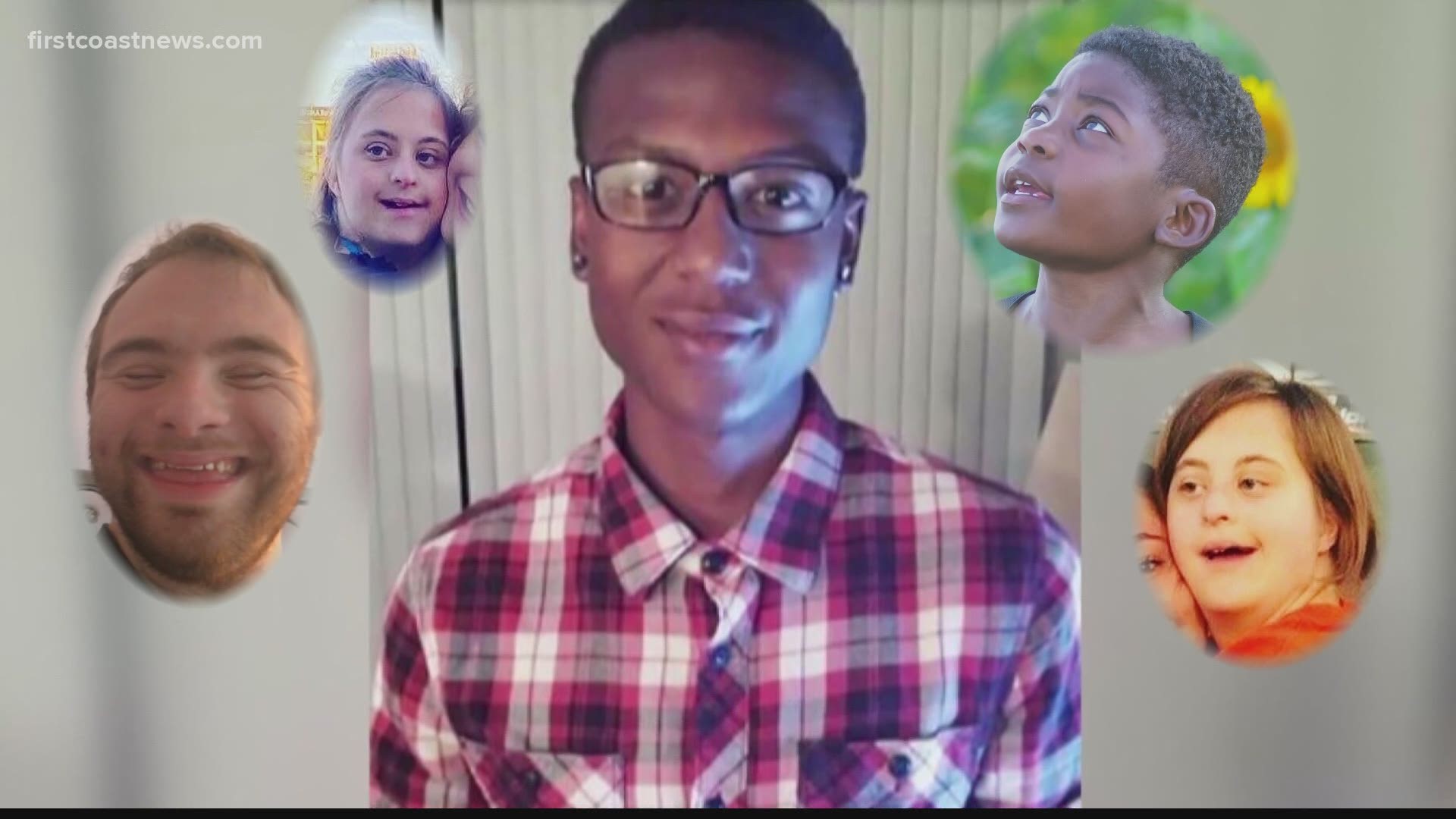ST. AUGUSTINE, Fla. — Brittney Lewis of St. Augustine has an 8-year-old son with autism.
When she and her best friend, Cindy Marshall, watched the released police bodycam video of the incident in which 23-year-old Elijah McClain was stopped by officers in Aurora, Colo. last summer, she made a troubling connection.
“[McClain] didn’t know how to respond or to react to them so that they knew that he wasn’t a threat,” Lewis surmised.
McClain reportedly was simply walking home from buying his brother an iced tea at a convenience store. He was wearing a ski mask but reports indicate that’s because he was anemic and often suffered chills, even in summer. McClain was unarmed and hadn’t committed a crime, but when officers approached him on a sidewalk an apparent misunderstanding ensued.
McClain told officers he was going home and explained to them that he was “an introvert” and “different,” but they apparently interpreted his behavior as resistant. McClain lost consciousness after officers reportedly placed him in a “carotid” hold and injected him with a sedative. Three days later he was declared brain dead.
The tragedy has also sparked allegations of racism – McClain was African-American and the officers detaining him were white. Lewis, who is also African-American, said her worries are compounded because her little boy, Lorenzo Lewis, is growing big quickly. Apart from any potential racial prejudice, she fears that his behaviors and his eventual intimidating size could be a problem if he ever has an encounter with police.
“When I think about [the McClain incident], I think about that that could be my baby,” she told First Coast News.
“When he gets nervous, he responds differently,” she said, using a recent fender bender she was in as an example.
“It struck me that he didn’t understand to have that response that everyone else had, of ‘Oh no, is everyone okay?’” she said.
She added that her son sometimes puts his hands in his pockets as a self-comforting technique when he’s anxious – exactly the kind of move that can cause a police officer to reach for their gun.
“If a person didn’t know that Lorenzo was on the spectrum, they would think that he was just being arrogant,” she said.
Given their concern, Lewis and Marshall began creating Bring Me Home, a non-profit organization aiming to familiarize law enforcement officers in St. Johns County with the intellectually or developmentally disabled people in the community, and vice-versa.
“Just getting them to recognize officers, but also officers recognizing them,” Marshall summarized.
To help with that recognition, their vision includes holding several meet-and-greet "training" sessions for officers each year, in which the groups will get together. To help with genuine understanding, therapists will be part of the sessions, to help police officers become more familiar with behaviors and interaction techniques - a familiarity it’s hoped will prevent misunderstandings that can lead to tragedy.
“Explain to the officers that, you know, ‘This is what you’re going to encounter. This is their coping mechanisms, this is what they may do when they’re nervous,’” Marshall hypothesized.
The inclusion of therapists is being aided by the Best Buddies International office in Jacksonville. Program Manager Sarah Jeter at Best Buddies estimated that there are about 2,000 intellectually or developmentally disabled citizens in St. Johns County. She told First Coast News that Bring Me Home “can truly save a life.”
Another key component of Bring Me Home will be a database that first responders can access to help with recognition if they come across an intellectually or developmentally disabled person in a crisis moment. The database will allow participants’ to include their individual conditions and situations, further helping officers. Participants will also receive “Bring Me Home” identification cards that they can show officers.
And the very name, “Bring Me Home,” will also be a useful "safe" phrase participants can use if confronted by a police officer.
“So that officer, right then and there, knows that’s someone in the program,” Marshall explained.
Lewis beamed that “law enforcement has been through the roof with the support” so far.
“It gives me so much hope and so much relief just to know,” she said, aware that what happened 1,500 miles away in Aurora has happened in other places and could happen anywhere.
“I want him to be okay,” she said about her precious son. “I have the same worries for other children as well.”
For information about how to participate or donate, visit www.bringmehomeinc.com, or email bringmehomeinc@gmail.com.

